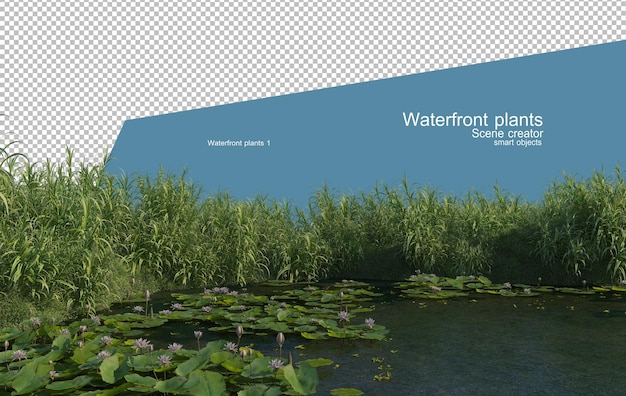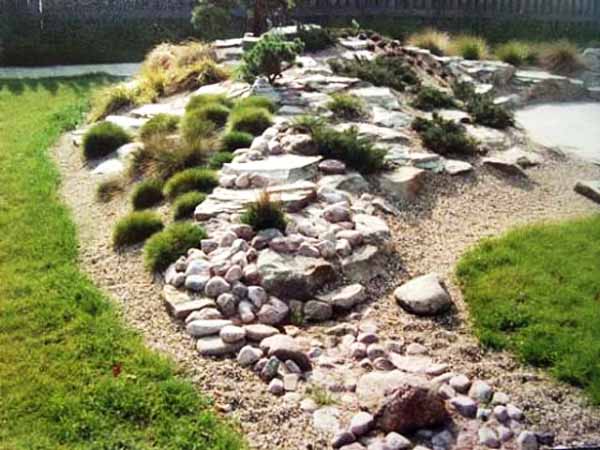Cultivating a Greener Future: Exploring Sustainable Landscape Education Programs
The world around us is changing, and with it, our understanding of how we interact with the environment. We’re increasingly aware of the impact our choices have on the planet, and this awareness is driving a surge of interest in sustainable practices. Nowhere is this more evident than in the field of landscaping. Gone are the days when manicured lawns and resource-intensive gardens were the norm. Today, the focus is shifting towards creating beautiful, functional, and environmentally responsible landscapes. This shift has fueled the growth of sustainable landscape education programs, which are equipping individuals with the knowledge and skills they need to design, build, and maintain landscapes that benefit both people and the planet.
The Growing Need for Sustainable Landscaping
Why the sudden interest in sustainable landscaping? Several factors are at play. First and foremost is the growing concern about climate change. Traditional landscaping practices often involve the use of fertilizers, pesticides, and excessive water, all of which can contribute to greenhouse gas emissions and environmental degradation. Sustainable landscaping, on the other hand, aims to minimize these negative impacts by utilizing practices that conserve resources, protect biodiversity, and promote ecological health.
Beyond climate change, there’s a growing recognition of the importance of ecosystems. Landscapes are not just aesthetic features; they are vital habitats for wildlife, provide essential ecosystem services like clean air and water, and contribute to our overall well-being. Sustainable landscaping seeks to enhance these benefits by incorporating elements like native plants, rain gardens, and permeable paving.
Finally, there’s a rising demand from consumers for sustainable products and services. Homeowners, businesses, and municipalities are increasingly seeking out landscape professionals who can create and maintain eco-friendly landscapes. This demand is driving the growth of the sustainable landscaping industry and creating new opportunities for individuals with the right skills and knowledge.
What are Sustainable Landscape Education Programs?
Sustainable landscape education programs are designed to provide individuals with the knowledge and skills they need to design, build, and maintain environmentally responsible landscapes. These programs vary in scope and format, ranging from short courses and workshops to certificate programs and even bachelor’s or master’s degrees. However, they all share a common goal: to educate individuals about the principles and practices of sustainable landscaping.
The curriculum of a sustainable landscape education program typically covers a wide range of topics, including:
- Ecological Principles: Understanding ecosystems, plant communities, and the relationships between plants, animals, and the environment.
- Plant Selection: Choosing the right plants for the right place, considering factors like climate, soil, and water availability. Emphasis is often placed on native plants, which are adapted to local conditions and require less maintenance.
- Water Conservation: Implementing water-efficient irrigation systems, using drought-tolerant plants, and capturing rainwater for irrigation.
- Soil Management: Understanding soil composition, improving soil health, and using compost and other organic amendments to enhance soil fertility.
- Pest and Disease Management: Employing integrated pest management (IPM) strategies to minimize the use of pesticides and promote healthy plant growth.
- Landscape Design: Creating aesthetically pleasing and functional landscapes that incorporate sustainable principles.
- Construction and Maintenance: Learning about eco-friendly building materials, construction techniques, and maintenance practices.
- Business Practices: Developing business skills, such as marketing, pricing, and customer service, for those who want to start their own landscaping businesses.
These programs often combine classroom instruction with hands-on experience, allowing students to apply what they learn in real-world settings. This practical experience is crucial for developing the skills and confidence needed to succeed in the sustainable landscaping field.
Types of Sustainable Landscape Education Programs
The type of sustainable landscape education program that’s right for you will depend on your goals, experience, and time commitment. Here are some of the most common types of programs:
Short Courses and Workshops
These are typically one-day or multi-day programs that provide an introduction to a specific topic in sustainable landscaping. They are a great option for individuals who are new to the field or who want to learn more about a particular practice, such as rainwater harvesting or composting. Examples include workshops offered by local nurseries, botanical gardens, or community colleges.
Certificate Programs
Certificate programs provide a more in-depth education than short courses, usually requiring several weeks or months of study. They often cover a broader range of topics and may include hands-on projects or internships. Certificate programs are a good option for individuals who want to gain a solid foundation in sustainable landscaping principles and practices and may be looking to change careers or advance in their current landscaping roles. Examples include programs offered by professional organizations like the Association of Professional Landscape Designers (APLD).
Associate’s Degrees
Associate’s degrees in landscape design or horticulture provide a comprehensive education in landscape design, construction, and maintenance. These programs typically take two years to complete and cover a wide range of topics, including plant identification, landscape design principles, and business management. They are a good option for individuals who want a more formal education and who may be interested in pursuing a career in landscape architecture or a related field.
Bachelor’s and Master’s Degrees
Bachelor’s and master’s degrees in landscape architecture or related fields provide the most in-depth education in sustainable landscaping. These programs typically involve four or more years of study and cover a wide range of topics, including landscape design, site planning, construction, and environmental science. They are a good option for individuals who want to become landscape architects, urban planners, or researchers.
Benefits of Participating in Sustainable Landscape Education Programs
Enrolling in a sustainable landscape education program offers a multitude of benefits, both personally and professionally. Here are some of the key advantages:
- Enhanced Knowledge and Skills: You’ll gain a deep understanding of sustainable landscaping principles and practices, as well as the practical skills needed to design, build, and maintain eco-friendly landscapes.
- Career Opportunities: The demand for sustainable landscaping professionals is growing rapidly, creating new and exciting career opportunities. Graduates of these programs are well-positioned to find employment in a variety of settings, including landscape design firms, nurseries, municipalities, and private businesses.
- Networking Opportunities: You’ll have the opportunity to connect with other professionals in the sustainable landscaping field, as well as potential employers and clients.
- Increased Earning Potential: Sustainable landscaping professionals often command higher salaries than traditional landscapers, reflecting the growing demand for their expertise.
- Personal Satisfaction: You’ll have the satisfaction of knowing that you are contributing to a healthier planet and creating beautiful, functional landscapes that benefit both people and the environment.
- Professional Certification: Many programs prepare individuals for professional certifications, such as the Certified Sustainable Landscape Professional (CSLP) offered by the Sustainable Landscape Professionals (SLP) organization.
Choosing the Right Sustainable Landscape Education Program for You
With so many sustainable landscape education programs available, choosing the right one can seem daunting. Here are some factors to consider when making your decision:
- Your Goals: What do you hope to achieve by taking a sustainable landscape education program? Are you looking to change careers, advance in your current role, or simply learn more about sustainable landscaping?
- Your Experience: What is your current level of experience in landscaping? Some programs are designed for beginners, while others are geared towards experienced professionals.
- Your Time Commitment: How much time are you willing to dedicate to the program? Some programs are part-time, while others require a full-time commitment.
- Your Budget: How much are you willing to spend on tuition and other program-related expenses?
- Program Accreditation: Does the program have any accreditation? Accreditation from a reputable organization can help ensure the quality of the program.
- Curriculum: Does the curriculum cover the topics that are most important to you?
- Instructors: What are the qualifications and experience of the instructors?
- Location: Is the program located in a convenient location for you?
- Hands-on Experience: Does the program offer opportunities for hands-on experience, such as field trips or internships?
- Networking Opportunities: Does the program offer opportunities to network with other professionals in the field?
By carefully considering these factors, you can find a sustainable landscape education program that is the perfect fit for your needs and goals.
The Future of Sustainable Landscaping
The future of landscaping is undoubtedly sustainable. As awareness of environmental issues continues to grow, the demand for eco-friendly landscapes will only increase. This will create even more opportunities for individuals with the knowledge and skills to design, build, and maintain sustainable landscapes.
Here are some trends that are shaping the future of sustainable landscaping:
- Increased Use of Native Plants: Native plants are adapted to local conditions and require less water, fertilizer, and pesticides than non-native plants. They also provide important habitat for wildlife and support biodiversity.
- Water Conservation: Water scarcity is a growing concern in many parts of the world. Sustainable landscaping practices, such as rainwater harvesting, drought-tolerant landscaping, and efficient irrigation systems, will become increasingly important.
- Soil Health: Healthy soil is essential for plant growth and environmental sustainability. Practices such as composting, mulching, and cover cropping will become more widespread.
- Green Infrastructure: Green infrastructure, such as green roofs, rain gardens, and permeable paving, can help to manage stormwater runoff, reduce the urban heat island effect, and improve air quality.
- Smart Technology: Smart technology, such as automated irrigation systems and soil sensors, can help to optimize water use and reduce waste.
- Community Engagement: Sustainable landscaping is not just about individual properties; it’s also about creating healthy and vibrant communities. Community gardens, urban forests, and other community-based initiatives will become increasingly important.
Sustainable landscape education programs will play a crucial role in shaping the future of landscaping. By equipping individuals with the knowledge and skills they need to create and maintain eco-friendly landscapes, these programs are helping to build a more sustainable and resilient future for all.
Conclusion: Embrace the Green Revolution
The world of landscaping is undergoing a profound transformation. The shift towards sustainability is not just a trend; it’s a fundamental change in how we approach the design, construction, and maintenance of our outdoor spaces. Sustainable landscape education programs are at the forefront of this revolution, empowering individuals to become stewards of the environment and create landscapes that are both beautiful and beneficial.
If you’re passionate about the environment, have a love for plants, or simply want to make a difference, consider exploring the many sustainable landscape education programs available. Whether you’re a seasoned professional looking to enhance your skills or a complete novice eager to learn, there’s a program out there for you. Embrace the green revolution and join the growing community of individuals who are working to create a more sustainable and beautiful world, one landscape at a time. The future of our planet, and the beauty of our surroundings, may very well depend on it.



